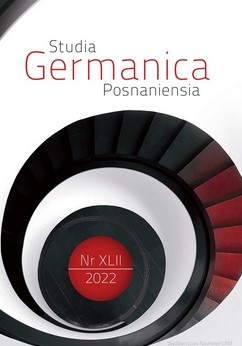DIE INVOLUTION DER VERWANDLUNG. POSTHUMANISTISCHE DENKFIGUREN IN ELIAS CANETTIS „MASSE UND MACHT“
THE INVOLUTION OF TRANSFORMATION. POSTHUMANISTIC THOUGHTS IN ELIAS CANETTI’S “CROWDS AND POWER”
Author(s): Hans-Joachim SCHOTTSubject(s): Metaphysics, Social Philosophy, Contemporary Philosophy, Cognitive Psychology
Published by: Uniwersytet Adama Mickiewicza
Keywords: Elias Canetti; posthumanism; power; transformation; death;
Summary/Abstract: In his main philosophical work Crowds and Power, Elias Canetti suspends the difference between nature and culture, which is central to the Western metaphysics, by following Friedrich Nietzsche’s discussion of the human relationship to animate and inanimate nature under the concept of transformation, which denotes the Dionysian process of a psychophysical metamorphosis. The transformation combines intense affects, material particles and the free variation of dense signs into a symbolic structure that initiates a transversal communication and an exchange process between the human and animal organism. Canetti unfolds this post-anthropocentric cognitive model on the basis of a phenomenological approach to psychotic borderline experiences. While he considers the schizoid experience of intense currents of affection as a paradigmatic example of the non-violent interchange of man with nature, he recognizes in the disease patterns of paranoia the fundamental structures of power that prevent transformation in favor of the instrumental domination of nature and social interactions. For Canetti, the paranoia of power is at the same time the paranoia of a concept of rationality that has been deeply rooted in the history of Western philosophy and science since Aristotle, and which tries to define the human as distinct from the nature surrounding it.
Journal: Studia Germanica Posnaniensia
- Issue Year: 2022
- Issue No: 42
- Page Range: 9-26
- Page Count: 18
- Language: German

